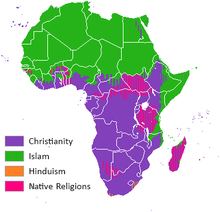At the very least it's no more subjective than any other humanities subject. That's also not an argument for not teaching it.
It is, because it is about people's faith, it is another topic that people get too excited about... There are a lot of topics you just don't force on people.
I very neatly set out how teachers can teach subjects on which they have strong views without forcing those views on their students, and you seem to have totally ignored me.
No, I didn't ignore you, the teachers in question ignore such rules... it happens all the time. On other issues, not a huge deal... but, let's say, you're a staunch religion X... your kid gets exposed to a teacher who is biased, the kids don't realize it, and the teacher gets away with it for a bit... well, now your kid has decided religion Y is superior and converts... How would that make you feel? Kids are impressionable.
Again! Just because we can't do a perfect job doesn't mean that we don't do anything at all. We still have bad drivers, but that doesn't mean we shouldn't bother trying to teach people to drive properly.
Well, the skin problem is getting pretty big over there, isn't it? I am not sure of that, it could just be media hype... but... that's what I've seen from limited sources.
Again, people's private, individual beliefs are different than public safety.
Except that there are several issues (road safety, for example) upon which you realise that the vast majority of people cannot be trusted to get it right themselves. This is the same
Personal, private beliefs versus public safety for a priveledge? Not hardly the same.
After the whole 'Barack Obama is a Muslim' debacle, I beg to differ.
How empirical an argument. I won't even address it further as it means ZILCH.
As interesting as this is, it isn't the point - those decisions are taken by the politicians and educationalists who work out exactly what each student needs to know, just as they do for every other subject.
My point is, I don't want the prevailing powers at the moment to decide... that time could be spent on learning other topics that aren't so interpersonally controversial and actually prepare the student for something other than debate.
Again, what you think is ok teaching about Christianity... a mormom likely wouldn't... and vice versa... So, what some politician and teacher panel decides is sure to piss someone off... why do that?
I'll stick with individual freedom.



